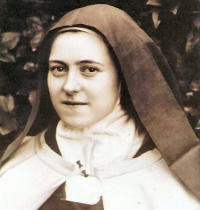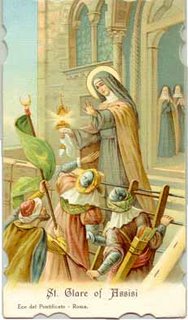 Today's Reading I found very edifying. I will share Daily Readings with you, dear Visitors, during several days of my recess; I will publish, however, Saturday and Sunday posts as usual.
Today's Reading I found very edifying. I will share Daily Readings with you, dear Visitors, during several days of my recess; I will publish, however, Saturday and Sunday posts as usual. Daily Reading
Sirach 31,8-11.
Blessed is the rich man that is found without blemish: and that hath not gone after gold, nor put his trust in money nor in treasures. Who is he, and we will praise him? for he hath done wonderful things in his life. Who hath been tried thereby, and made perfect, he shall have glory everlasting. He that could have transgressed, and hath not transgressed: and could do evil things, and hath not done them: Therefore are his goods established in the Lord, and all the church of the saints shall declare his alms.
Lk 12,35-40.
Let your loins be girt and lamps burning in your hands. And you yourselves like to men who wait for their lord, when he shall return from the wedding; that when he cometh and knocketh, they may open to him immediately. Blessed are those servants whom the Lord, when he cometh, shall find watching. Amen I say to you that he will gird himself and make them sit down to meat and passing will minister unto them.
And if he shall come in the second watch or come in the third watch and find them so, blessed are those servants. But this know ye, that if the householder did know at what hour the thief would come, he would surely watch and would not suffer his house to be broken open. Be you then also ready: for at what hour you think not the Son of man will come.
after www.peripsum.org

Daily Reflection
I am quite resigned to live or to die, I am even willing to recover and go to Cochin-China if it is God's will. St Therese
after Society of Little Flower
Read whole post......
Sirach 31,8-11.
Blessed is the rich man that is found without blemish: and that hath not gone after gold, nor put his trust in money nor in treasures. Who is he, and we will praise him? for he hath done wonderful things in his life. Who hath been tried thereby, and made perfect, he shall have glory everlasting. He that could have transgressed, and hath not transgressed: and could do evil things, and hath not done them: Therefore are his goods established in the Lord, and all the church of the saints shall declare his alms.
Lk 12,35-40.
Let your loins be girt and lamps burning in your hands. And you yourselves like to men who wait for their lord, when he shall return from the wedding; that when he cometh and knocketh, they may open to him immediately. Blessed are those servants whom the Lord, when he cometh, shall find watching. Amen I say to you that he will gird himself and make them sit down to meat and passing will minister unto them.
And if he shall come in the second watch or come in the third watch and find them so, blessed are those servants. But this know ye, that if the householder did know at what hour the thief would come, he would surely watch and would not suffer his house to be broken open. Be you then also ready: for at what hour you think not the Son of man will come.
after www.peripsum.org

Daily Reflection
I am quite resigned to live or to die, I am even willing to recover and go to Cochin-China if it is God's will. St Therese
after Society of Little Flower













































